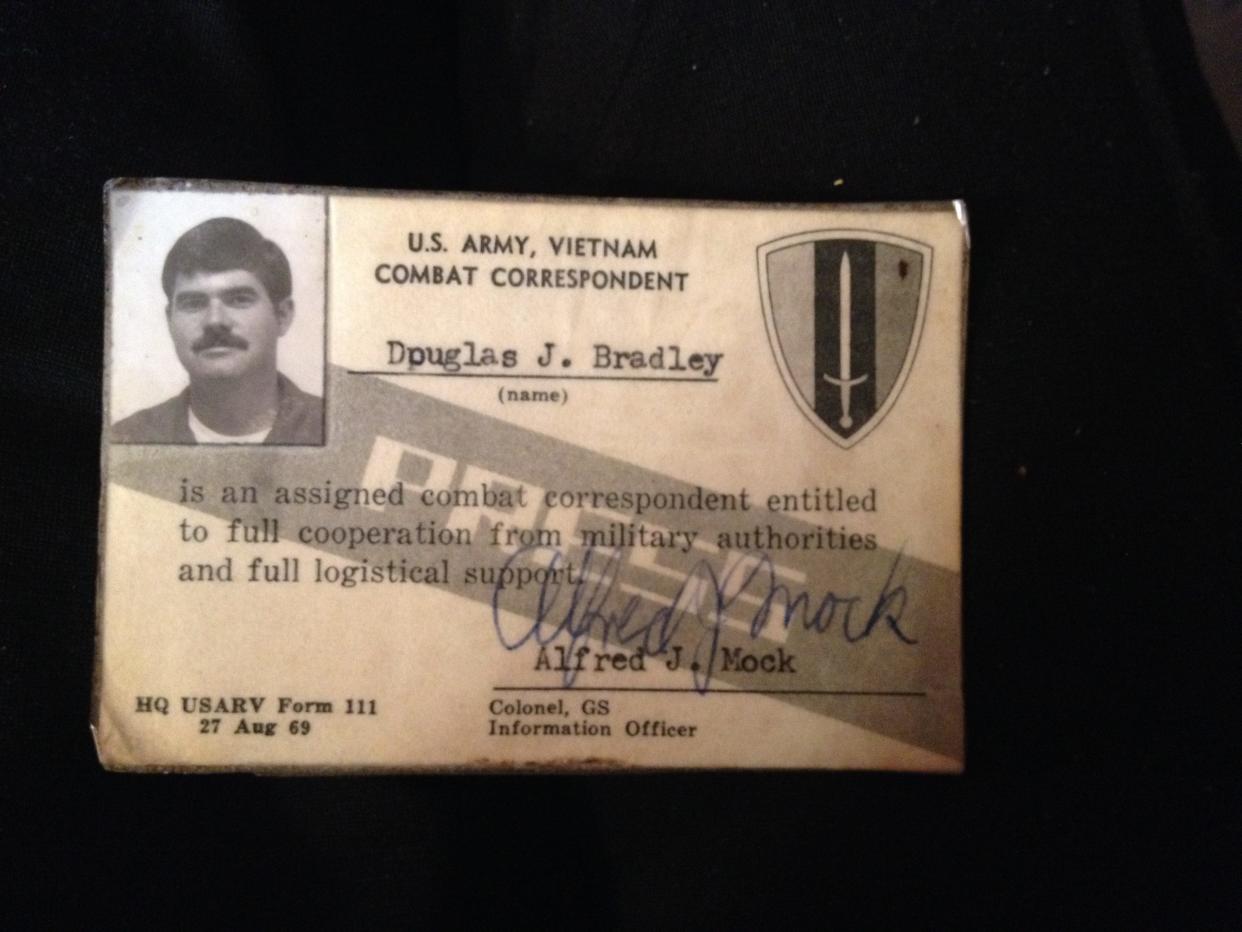Lies exposed by the Jan. 6 hearings recall an earlier lie: The Pentagon Papers and the Vietnam War

Like many of my fellow Americans, I’ve been glued to the TV for each new episode of the Jan. 6 hearings, a skillfully executed drama in which the investigators piece by piece disassemble a “big lie” about a fanciful stolen election and a nearly successful coup. But as I watch, I can’t help but thinking of another time when a big lie was tearing our nation apart.
Not long before my tour of duty in Vietnam ended, The New York Times published The Pentagon Papers, a carefully researched, methodical takedown of the distortions, misrepresentations and downright fabrications that were killing a thousand U. S. soldiers a month. It turned out many in leadership knew from the beginning that our Vietnam adventure was doomed. Still, despite all the coffins and stretchers, most in government did not want Vietnam’s big lie exposed. Too many were invested in a false narrative, and it took a decision from the Supreme Court to allow the truth to be told.
I was thrilled by the news and naively believed that the Papers’ release would result in outrage and accountability. A National Day of Honesty that would end the war and our country’s nightmare. To my frustration, the story sparked a debate about freedom of the press rather than focus on the mountains of lies we’d told our soldiers, the men and women who risked, and lost, the most. And it didn’t take long for the country to move back to its respective political corners. Meanwhile, the war continued, and another 15,000 lives would be lost.
More: Pressure campaigns, predictable violence: What we learned from all eight Jan. 6 hearings
More: Will Trump or his allies face charges over Jan. 6? Legal experts explain hurdles DOJ faces
One of my last assignments as a soldier/journalist before leaving Vietnam in 1971 was to “sanitize” a story I’d written about newly minted South Vietnamese Army novices recruited as part of President Richard Nixon’s plan to turn the ground war over to our allies in order to secure “peace with honor.” The U.S. command heralded them as South Vietnam’s best and brightest, even though many of them had to be bribed to enlist.
I sensed almost immediately that these new recruits would fold when they met the better-trained and more committed North Vietnamese troops. And no sooner than you could say “Ho Chi Minh,” a large number of them had gone AWOL or deserted. Of course, only the “sanitized” version of the story about the new recruits was published. Officially, there was still light at the end of the tunnel. To say otherwise would hurt the morale of the soldiers and those that still believed in the war back home.
But lies often come back to haunt. The abject failure of this scheme helped set the stage for our humiliating departure from Vietnam in 1975, the U.S. embassy overrun as burdened helicopters strained to take off.
Flash forward almost 50 years and I watched another group of touted recruits, new Afghani soldiers, suffer a similar collapse. But the media coverage focused on the initial days of chaos at the airport before our soldiers took control, not the decades of lies and corruption that surrounded our doomed war in Afghanistan. A new war and the same old lies, its own Pentagon Papers ignored.
Because of television, social media, and first-rate choreography, the Jan. 6 hearings have captured more public interest than the Pentagon Papers. But it remains uncertain whether the committee will convince the American electorate, and many of its politicians, that whatever our political differences, we must accept a common rule book and code of conduct. That we must be worthy of the best of our traditions that so many, among them my Vietnam comrades, have fought and died for.
I still feel guilty about my role as part of the Army’s propaganda machine and have spent much of my life since trying to tell the truth about Vietnam. But anger has replaced guilt. I took an oath to support and defend our government and its Constitution, and it is maddening to see so many of our nation’s leaders shirk their duty and hide behind a wall of lies, rather than tell the truth to their constituents. In the military, they would face a court martial.
In the end, it is up to us whether the Jan. 6 Committee becomes the needed wake-up call that keeps our country free of tyranny. In another half century, will historians look back on this moment, asking why we couldn’t face the truth, even when our democracy was in peril? Maybe if Vietnam teaches us about the dangers of believing in a lie, even a seemingly comforting one, then the Vietnam War might still do some good.
U. S. Army veteran Doug Bradley spent 365 days in Vietnam in 1970-71 and is the author of three books grounded in his Vietnam experience. Bruce Meredith, who witnessed and wrote about his own lies and deception working in military intelligence during his Vietnam tour, helped him frame this piece.
Our subscribers make this reporting possible. Please consider supporting local journalism by subscribing to the Journal Sentinel at jsonline.com/deal.
DOWNLOAD THE APP: Get the latest news, sports and more
This article originally appeared on Milwaukee Journal Sentinel: Lies exposed by Jan. 6 hearings recall Pentagon Papers and Vietnam War

